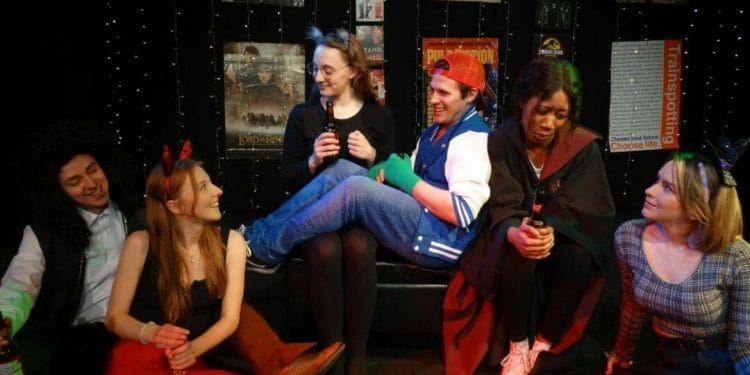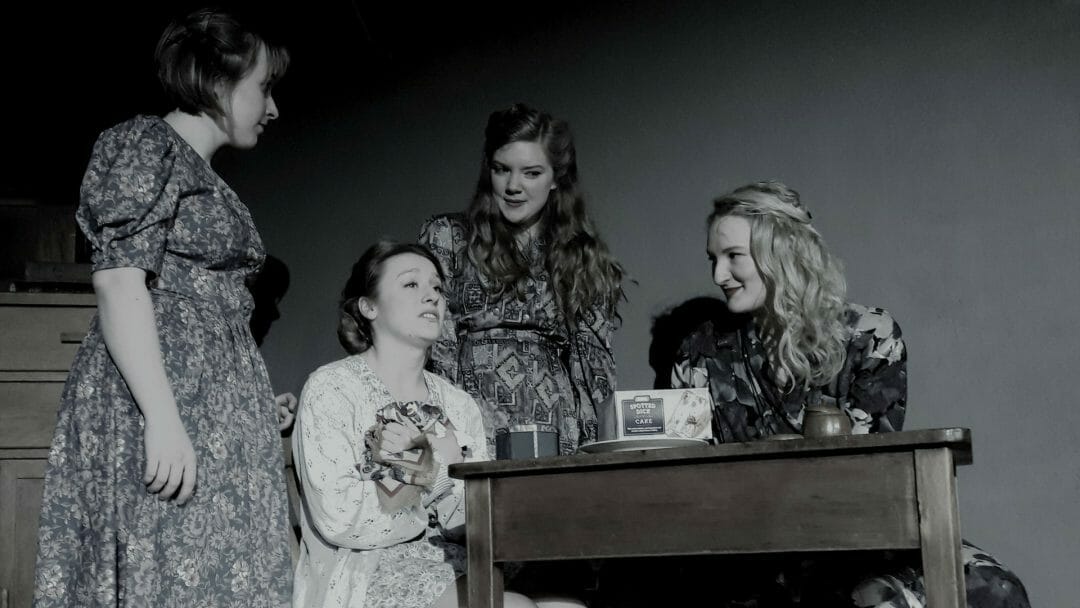 There is an irony to the title Staying Faithful that the writer/director Rosanna Foster appears to have overlooked. It does indeed set out the play’s intent to show how religion plays its part in this coming of age tale of a group of schoolfriends discovering life, love, sex and relationships for the first time. It’s just a pity that the execution of the production doesn’t really demonstrate the same sentiment.
There is an irony to the title Staying Faithful that the writer/director Rosanna Foster appears to have overlooked. It does indeed set out the play’s intent to show how religion plays its part in this coming of age tale of a group of schoolfriends discovering life, love, sex and relationships for the first time. It’s just a pity that the execution of the production doesn’t really demonstrate the same sentiment.
The premise is a pertinent one. Tales of male and female friends growing up together traditionally is fertile ground for comedy and, indeed, alternatively, for exploring universal themes, such as identity, sexuality, faith, values and expectations at a deeper level. The setting of the action from the turn of the 21st century to mid-2010s with a backdrop of seminal late 90s and early 2000’s pop hits suggests that the production is well aimed at a target millennial audience. The trouble is it has a bit of an identity crisis itself and while displaying creditable elements that have one laughing one minute and thinking the next, it never really delivers on either front.
The comedy comes largely from the strength of individual character performances from the solid ensemble cast. Suzie Voce sparkles as the flighty, flirty Chazza and her appearance at a Halloween party leaves the audience in no doubt that she is the ‘little devil’ of the group. Maria Anthony brings to mind Julia Sawalha’s Saffy in the 90’s television series ‘Absolutely Fabulous’ as the studious, well-meaning but socially awkward April. Her worthy but hapless attempts to appropriate various world religions are comic gold as well as being a triumph for the costume department! Anthony Portsmouth as Zac, and Philip Davis-Walker as Fletch also demonstrate an affinity with physical theatre, in particular, when depicting a hair-raising all boys’ video gaming session.
Another whole play could have been written around the character of Hope. Gabrielle Quaye’s portrayal lends Staying Faithful an air of sensitivity and reflection which is in danger of being lost under the knockabout humour. Her offer to pray for the ‘fallen’ and searching Chezza is touching and thought-provoking. Her questioning of her relationship with Jess (Laura Perry) in relation to her Christian faith opened up a potentially interesting avenue which could have been explored more thoroughly. Similarly, we are led to believe that both Jess and Zac are Jewish but an exploration of the impact of which is limited to stereotypical references to ‘Friday night dinner’ and working in the financial sector.
Lighting is used to good effect throughout, to signify character and mood and it is obvious that care has been taken to evoke a feel of the era with a simple set displaying contemporary film posters and the distinctive sound of a Nokia 3310 mobile phone! However, the technique of flashing forward and back was a little confusing as was the twist at the end. In conclusion, Staying Faithful is commendable but isn’t always easy.

















